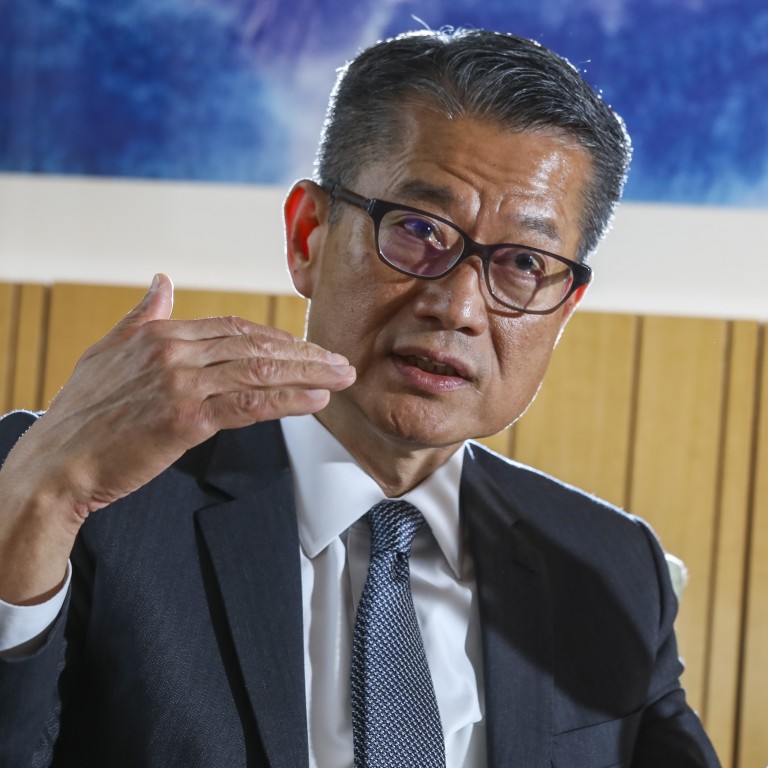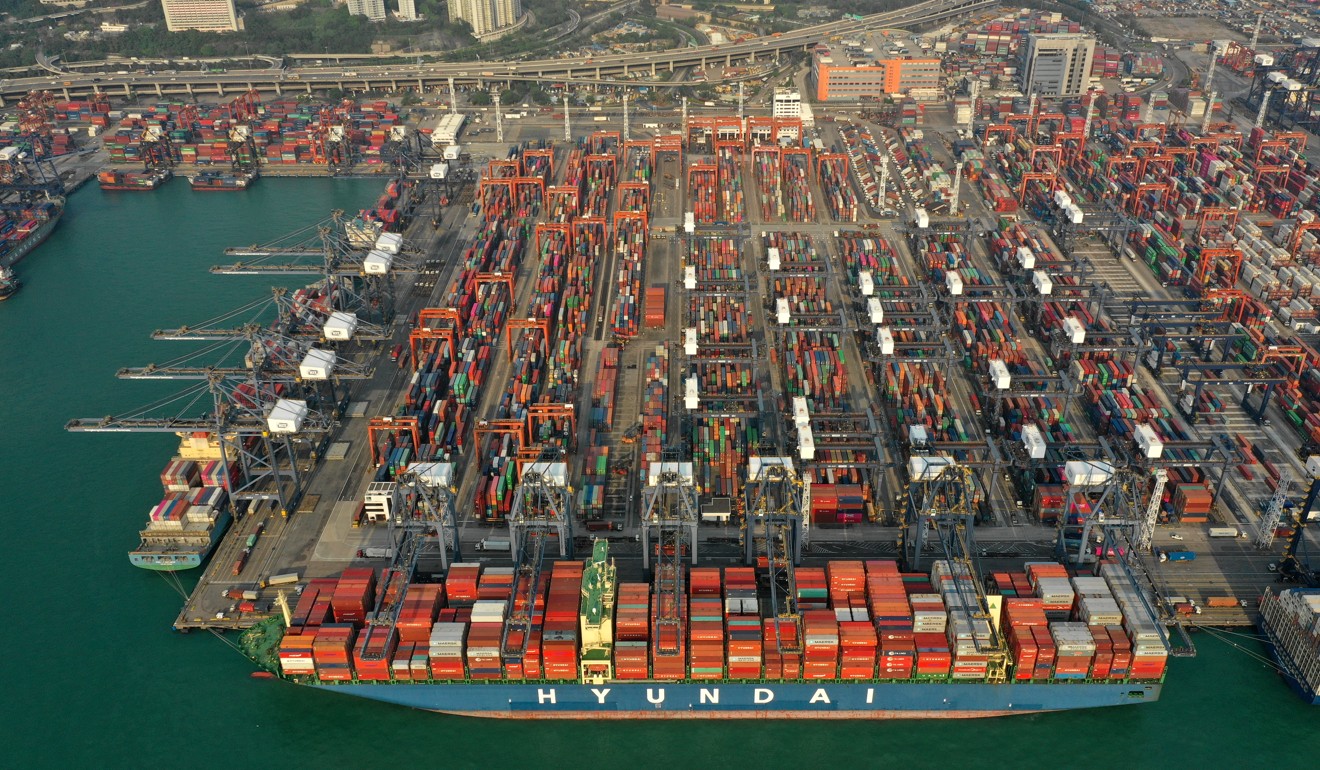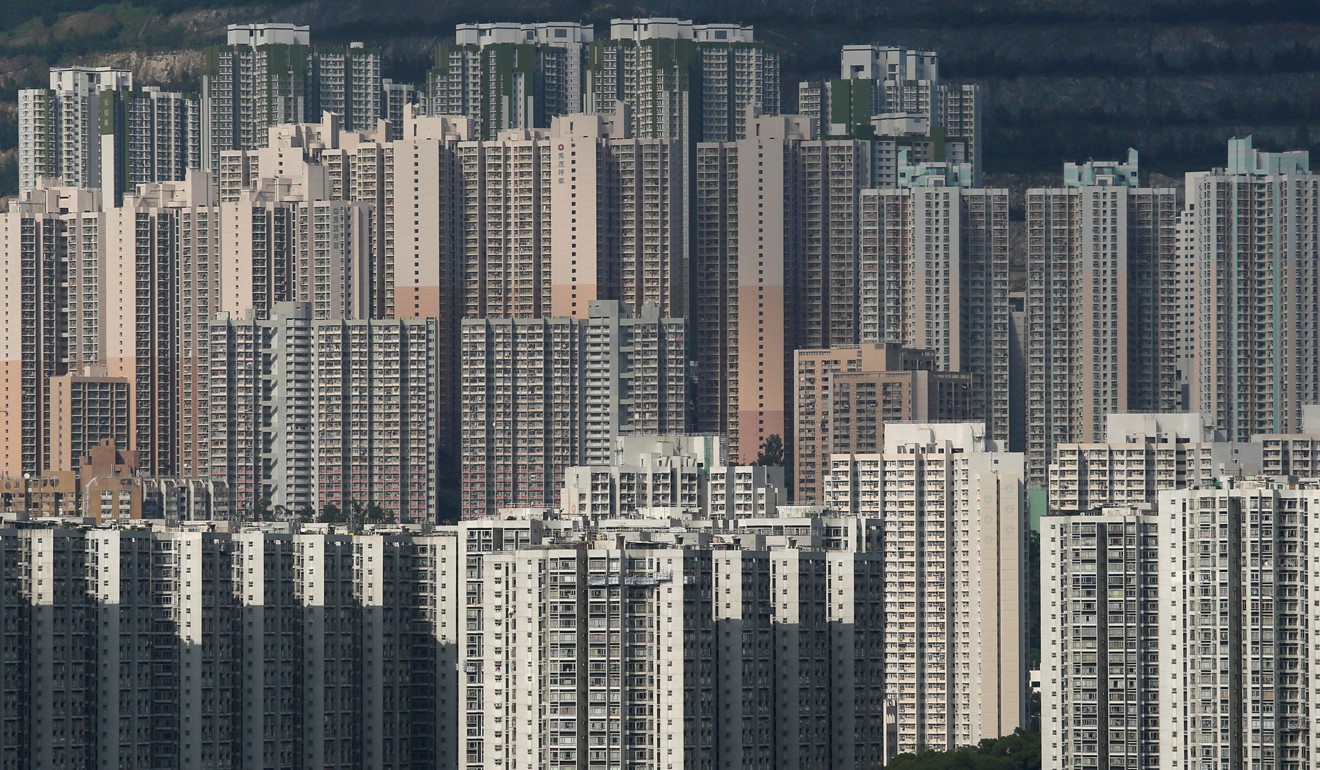
Exclusive | Trade war risks and mainland Chinese stock trades have Hong Kong keeping a wary eye on financial security, says treasury chief Paul Chan
- Paul Chan notes unprecedented flow of capital through the city into the mainland China stock market
- Minister also discusses housing, Beijing’s regional development plans and Belt and Road Initiative
Hong Kong is keeping a keen eye on financial security after an unprecedented flow of capital through the city into the mainland China stock market and the mounting risks posed by the US-China trade war, the financial secretary has said.
In a wide-ranging exclusive interview with the Post last week, Paul Chan Mo-po cited heightened risk after “some smart money” – or money from savvy investors – from overseas poured into Shanghai and Shenzhen’s stock markets in the previous few months, via Hong Kong’s stock connects with both cities.
He pointed out that the amount of such northbound trading in mainland Chinese stocks in the first quarter of this year far exceeded the total for all of last year, and the total for southbound trading – that is, mainland Chinese investors buying Hong Kong stocks. The daily average for northbound trading on the Shanghai scheme nearly doubled to 20.74 billion yuan (US$3.07 billion) in the first quarter, from 11.62 billion yuan last year, while on the Shenzhen scheme it more than doubled to 17.78 billion yuan, from 8.78 billion yuan.
While overall financial risks are “manageable” for now, he said the city had put a closer watch on any capital flight arising from the chain effect of the fickle negotiations of the trade war, interest rate changes or nominalisation and changes in Hong Kong’s economic health.

“We can’t ignore the elephant in the room – the trade war – as two economic superpowers are locking horns. Other than the negotiations on the table, are there any tensions under the table?” Chan said.
“China, which has capital controls, is sealed off from the outside. Hong Kong becomes the first door for international capital to get into the mainland market and out of it. What if there is capital flight?”
Hong Kong’s resilience to external shocks came under the microscope earlier this month when President Xi Jinping promised to open up the country’s US$44 trillion financial sector to foreign banks and insurers, in a clear move to abide by any deal with the United States to end the trade war.
This means more capital is expected to cross the border, in and out, via Hong Kong.
Another factor which will quicken capital flow is the US-based equity index compiler MSCI’s decision to include Chinese stocks or A shares in its indexes since June last year, with the weighting of these shares rising gradually from 0.71 per cent in its benchmarks to 3.3 per cent by November.
HKEX posts bright first-quarter profit, boosted by surge in foreign trading of A shares
“Some smart money has gone into the mainland market through the schemes in the past few months, and the amount of northbound trading exceeded the southbound, which was the other way round previously,” Chan said. “The financial risks are rising. The ups and downs of US, Hong Kong and A shares are interrelated.”
A global financial hub, Hong Kong is the world’s largest offshore yuan trade settlement centre, processing 70 per cent of the world’s yuan payments.
We can’t ignore the elephant in the room – the trade war – as two economic superpowers are locking horns
Drawing on past experience in capital flight, Chan said the city, as an open market, was vulnerable to any rapid drop in asset prices and property and stock markets.
As a key measure to mitigate financial risks, Chan said the government closely monitored the health of the banking sector by ensuring banks had sufficient liquidity and working capital, good asset quality and smooth settlement of stock trading.
“Overall, risks are manageable,” he said.
Billy Mak Sui-choi, associate professor with Hong Kong Baptist University’s department of finance and decision sciences, said the biggest fear was political risks amid the growing cross-border capital flow. But he believed the existing mechanisms and systems in the banking sector and stock market could keep most risks at bay.
European firms risk being caught in trade war crossfire
He added that there was a bigger appetite from foreign funds to buy into A shares through the stock connect schemes as longer-term investments, due to the rising importance of China’s economy.
On the downside, however, risks have been building in the past three weeks when Shanghai and Shenzhen stocks slid from their gains in the three months since February.

Chan was even more cautious about the city’s runaway home prices.
He said the government would address young people’s frustrations with trying to buy a home in the world’s most expensive property market, by providing more subsidised housing.
One of the government’s tasks would be to facilitate land supply with an “infrastructure first” approach, he said, prioritising infrastructure projects such as new rail lines for areas where housing supply will grow.

But Chan declined to reveal whether the government had further measures up its sleeve to cool the market, saying he did not want to affect market expectations. He only said the government had been keeping track of market trends.
On the economy more broadly, he said Hong Kong was feeling the chill of the trade war, which had caused investors to delay decisions and soured shoppers’ sentiment. Last year, Chinese exports destined for the US through Hong Kong, or vice versa, accounted for almost 9 per cent of the city’s re-exports.
“Geopolitical risks are hard to predict,” Chan said, citing the failed talks between US President Donald Trump and North Korean supreme leader Kim Jong-un in Vietnam in February on North Korea’s denuclearisation.
“We are not too pessimistic on Hong Kong’s economic outlook, while being alert.”
He stuck to his forecast for Hong Kong’s GDP growth at 2-3 per cent for this year, after 3 per cent expansion last year. In the first quarter of this year, the city’s economy grew 0.5 per cent year on year, the lowest quarterly rate in a decade.

Citing an Asia Development Bank estimate that the projects needed backing to the tune of US$1.7 trillion annually between 2016 and 2030, he said private capital had a role to play.
“These projects need private capital, even though they are associated with risks on policy, politics and cost overrun,” he said. “The risk factors sound scary, but there are ways to mitigate and diversify them.”
He pointed out that Hong Kong need not go solo on a single project. Instead, he said, the city should team up with parties such as accountants, financial institutions, engineers and lawyers in a syndicate for comparing parameters and standards.
“For example, when investing in a project, the parties can diversify risks by bringing in the World Bank as part of a syndicate, which will enable collective bargaining power for funding and a way out in case of disputes,” he said.
Why is China playing hardball in trade war talks with the US?
The Hong Kong Monetary Authority, through its mortgage corporation, last year started tapping into the securitisation of infrastructure projects in the belt and road plan, he added.
Chan said the blueprint marked the city as a global aviation hub, and an international finance, transport and trade centre, which relayed a clear message to the other cities about its legitimate role in these areas, to avoid unnecessary rivalry.
Additional reporting by Shirley Zhao

